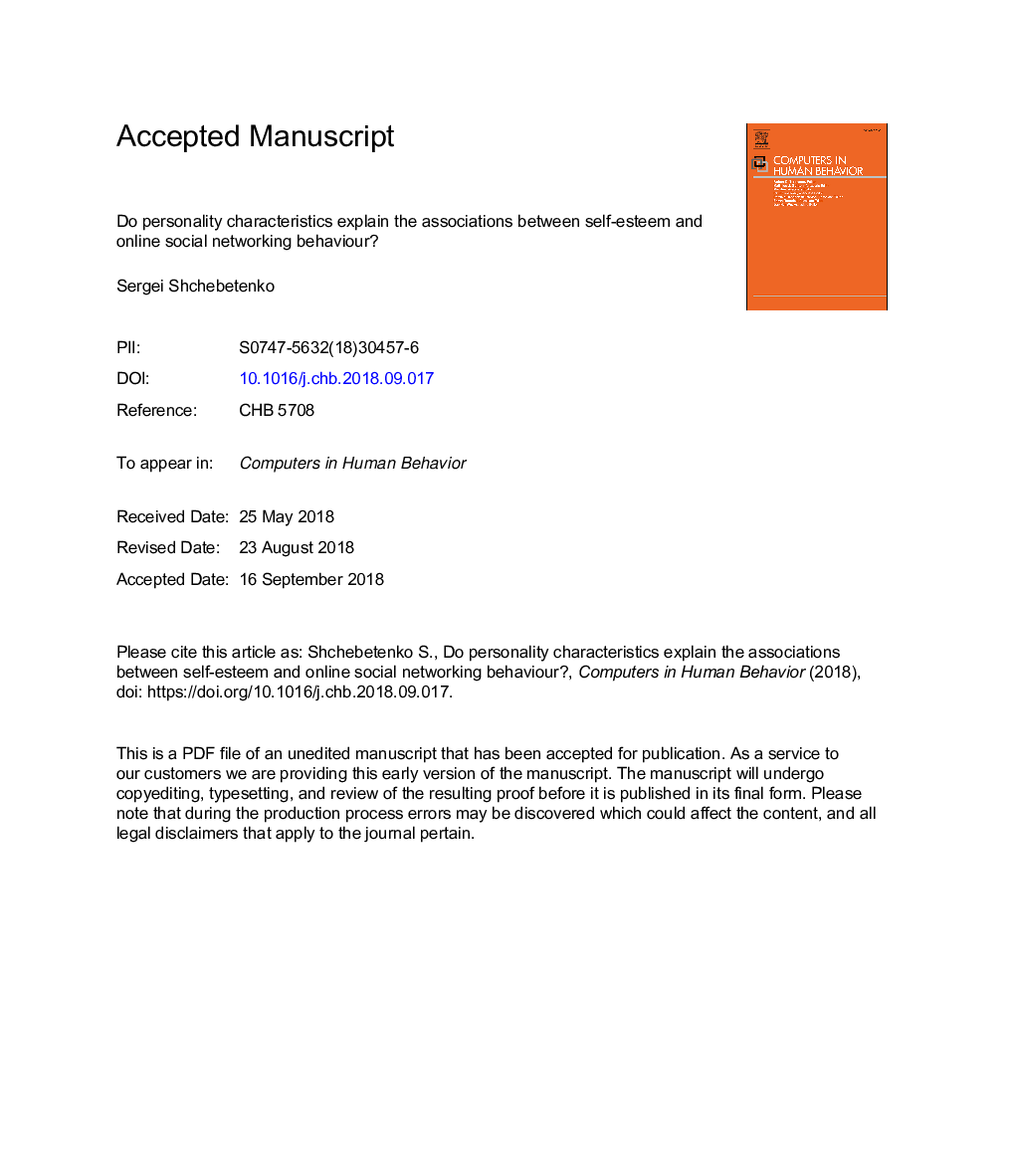| Article ID | Journal | Published Year | Pages | File Type |
|---|---|---|---|---|
| 10225641 | Computers in Human Behavior | 2019 | 31 Pages |
Abstract
The relationships between online social networking (OSN) behaviour and users' self-esteem are as important as well as ambiguous: Both positive and negative self-esteem can encourage users to engage in OSNs. This work examined whether personality traits and attitudes toward traits can explain this controversy. Data from 830 users of Vk.com, a Russian OSN were analysed. I hypothesised that extraversion and attitudes toward extraversion eliminated correlations between positive self-esteem and users' popularity (the number of friends and likes). In contrast, neuroticism and attitudes toward neuroticism failed to eliminate a negative correlation between self-esteem and an indicator of users' self-validation (the number of impersonal avatars). This association also remained significant when conscientiousness as well as negative attitudes toward conscientiousness and agreeableness were controlled. However, self-esteem did not correlate with the two other self-validation indicatorsâthe number of posts and portraits. This study casts doubt on the possibility of direct associations between positive self-esteem and users' popularity beyond such factors as extraversion. Nevertheless, it lends partial support to the association between negative self-esteem and users' self-validation such as the use of impersonal avatars even when other personality characteristics are considered.
Related Topics
Physical Sciences and Engineering
Computer Science
Computer Science Applications
Authors
Sergei Shchebetenko,
